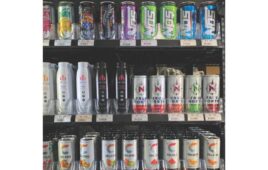 While the COVID-19 pandemic has increased cigar demand by homebound consumers, production across Central America and the Caribbean has withered due to health concerns and government-mandated lockdowns.
While the COVID-19 pandemic has increased cigar demand by homebound consumers, production across Central America and the Caribbean has withered due to health concerns and government-mandated lockdowns.
Those things add up to supply chain shortages. That has retailers like Brent Mouton, president of the 11-store Hit-n-Run chain in Louisiana, working to keep product on his shelves and keep his loyal tobacco customers happy.
Mouton said that he sympathizes with his suppliers — they’re doing everything they can to get product to retailers like Hit-n-Run.
“They’re just out of stock. There’s nothing they can do,” Mouton said. “We’ve talked to our supplier. … And if they can’t get them, they can’t get them to us. You know?”
He added that manufacturers have been responsive in filling in any specific product shortfalls with alternative stock to keep sales moving, as well as working to address the effects of plant closures due to COVID-19.
Cigar factories in Honduras, Nicaragua, the Dominican Republic, Cuba and elsewhere were either operating at reduced capacity or closed altogether in recent months. As those factories have returned to production, they’ve encountered shipping difficulties that have also been affected by the pandemic. U.S. cigar factories have been affected, too.
Worldwide, the pandemic is expected to suppress sales for combustible tobacco products in the near term, with a rebound beginning in 2021. According to “Cigarettes, Cigars and Cigarillos Global Market Report 2020-30: COVID-19 Impact and Recovery,” published in April by global market analysts The Business Research Co., the market is expected to decline slightly from $243.4 billion in 2019 to $241.2 billion in 2020, losing nearly a percent in its compound annual growth rate (CAGR).
Yet, the report predicts the market to bounce back at a CAGR of 4% starting next year and reaching a value of $266.9 billion by 2023.
Mouton’s optimistic, too, that stock will bounce back fairly soon. “We’re told that should be in the next month or two that they should have things ramped back up where we can start getting product on a regular weekly basis,” he said.

Despite local and state flavor bans, retailers say demand for cigarillos continues to drive cigar segment sales.
Demand Holding Up
On the bright side, Mouton said that demand for cigar products has stayed strong throughout the pandemic. For many retailers, demand has risen.
“The pandemic has had some major effects on the cigarillo category,” said Elaine Annis, retail operations coordinator at Richmond Masters Distributors, which owns 55 Low Bob’s tobacco stores in Indiana. “The demand for this product has increased significantly.”
Likewise for Mouton’s Hit-n-Run stores. “We do good with cigarillos,” he said. “We do good with Game. We do good with Black & Mild. Those are probably our best sellers right there.”
Both Annis and Mouton said that prices have remained steady, too, but also observed that there haven’t been any recent manufacturer promotions or new products.
“There were a few things in the pipeline,” Mouton said, “but it seems like right now, they’re just trying to get us the main sellers, as opposed to focusing on rolling out new stuff.”
Data from market analyst Nielsen supports what those retailers are seeing. Total U.S. convenience channel sales are up 7.4% for the 52 weeks ending Sept. 26, to total sales of $3.38 billion. For the 30-week period ending Sept. 26 — roughly paralleling the pandemic — total dollar sales are up 12% compared to the same period last year, totaling $2.06 billion.

Pandemic-driven obstacles aren’t the only issues retailers are having to navigate. More regulatory hurdles are always in the offing, whether state or local.
“The biggest concern I see happening, which we are seeing in some parts of the country already, is a flavor ban,” Annis observed.
So far, Mouton has been lucky. He’s seen little as far as local bans in the state of Louisiana. He said he reads about the local ordinances in other parts of the country, letting small municipalities levy their own laws as they go, making it “extremely tough to do business.”
But his hunch is that those restrictions will eventually reach his stores. “You’ve got to figure that, at some point, they’re going to go after cigars and all the flavors and all that stuff,” he said. “I mean, the handwriting’s on the wall on that one.”




